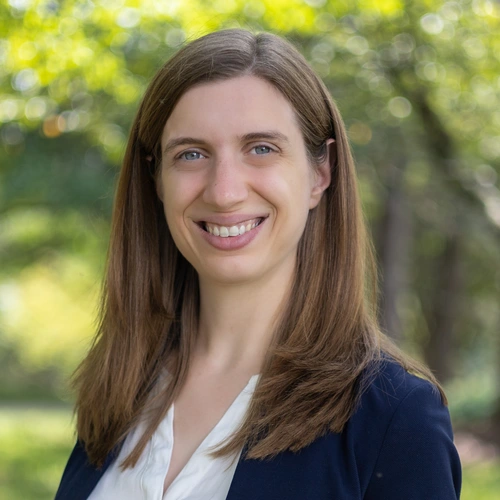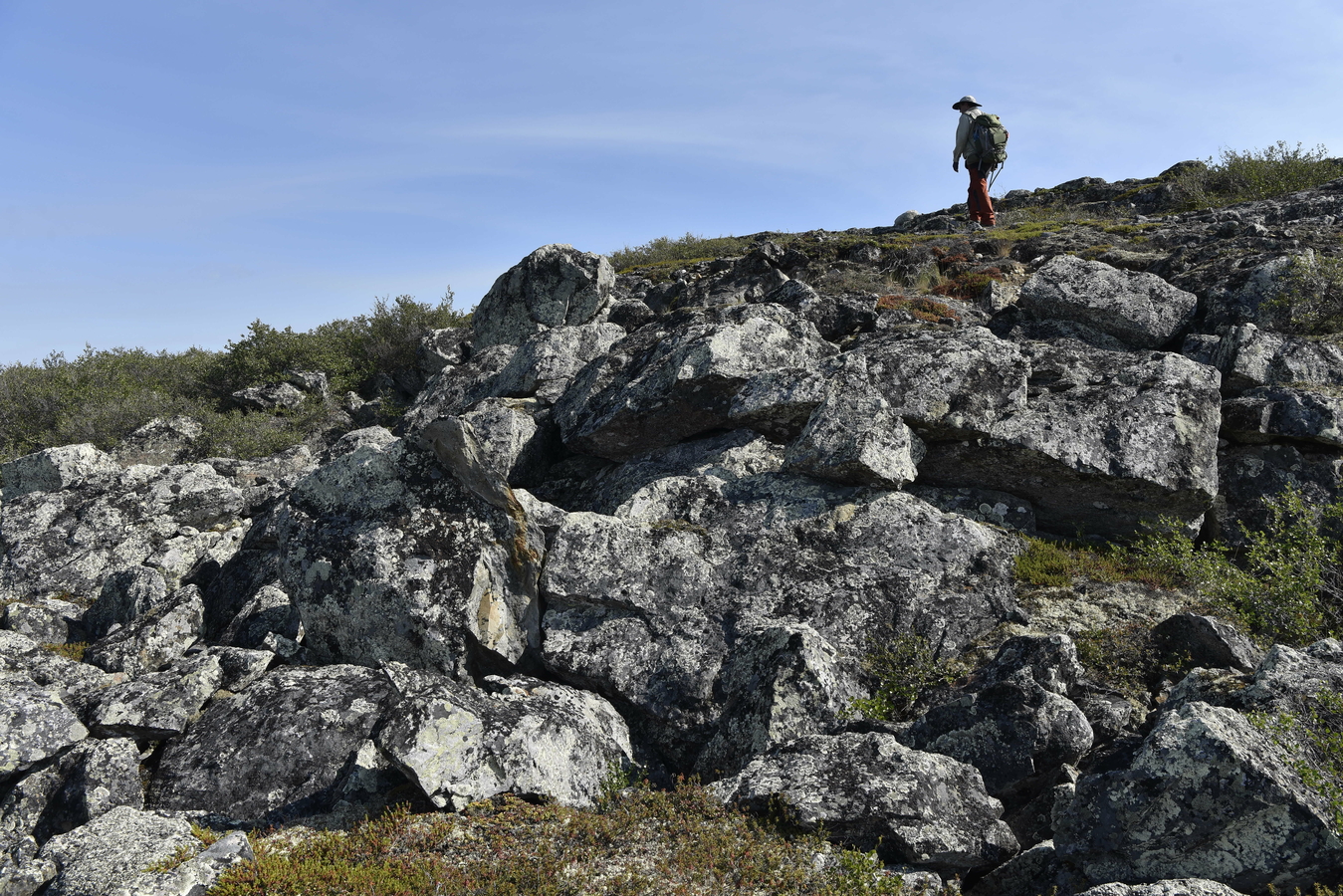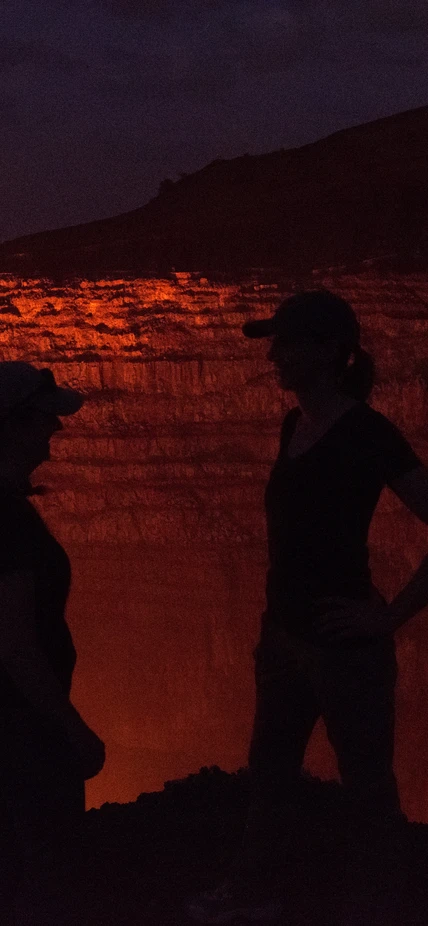This is a private event. In-person and virtual attendance are by invitation only.
Carnegie Science will host dozens of scientists from around the world at its Earth & Planets Laboratory August 12-15 for the TIMES (Time-Integrated Matrix for Earth Sciences) kickoff workshop. The event will be co-lead by Carnegie scientist Jennifer Kasbohm.
TIMES (Time-Integrated Matrix for Earth Sciences) is an ambitious decadal effort with the purpose of recalibrating global climate records from the last 100 million years on a unified, accurate, and precise timeline anchored by astrochronology and geochronology. The effort aims to produce several key outcomes, including: 1) the creation of an open access TIMES Web Hub; 2) a coordinated effort to obtain new paleoclimate proxy data at time intervals and locations most useful for projecting future climates; and 3) strengthening the scientific enterprise by promoting community and belonging in TIMES through training the next generation.

About Dr. Jennifer Kasbohm
Self-described “Earth historian” Jennifer Kasbohm is a Staff Scientist at Carnegie Science’s Earth and Planets Laboratory. She uses fieldwork and laboratory techniques to answer fundamental questions about our planet’s geologic past related to paleoclimatology, volcanism, and tectonics.
Learn more about Dr. Jennifer KasbohmProgram
5:00 – 7:00 PM – Registration & Icebreaker Happy Hour
7:00 PM – Dinner
9:00 – 9:15 AM – Welcome, organization, code of conduct, overview of workshop goals
9:15 – 9:20 AM – TIMES Survey
9:20 – 9:30 AM – Science Communication and Outreach Goals
9:30 – 10:00 AM – State-of-the-Art and Challenges: Bio-and Magnetostratigraphy (WG 1,2)
10:00 – 10:30 AM – State-of-the-Art and Challenges: Radioisotopic Dating & Chemostratigraphy (WG 3,4)
10:30 – 11:00 AM – Coffee Break
11:00 – 11:30 AM – State-of-the-Art and Challenges: Astrochronology: Synchronizing the Building Blocks o the Geologic Time Scale (WG 5)
11:30 AM – 12:00 PM – State-of-the-Art and Challenges: Climate Proxy Data and Climate Models (WG 6,7)
12:30 – 2:00 PM – Lunch Break
2:00 – 3:00 PM – Discussion of initial project timeline and science plan
3:00 – 3:15 PM – Discussion of tasks and breakout group organization
3:15 – 3:30 PM – Coffee available en route to breakouts
3:30 – 5:00 PM – Breakout Session 1 - define Mission and Vision statement, research objectives and Milestones (science), structural objectives (tools, databases), guiding principles The breakouts will occur at the working group level
9:00 – 9:30 AM – Synergies between TIMES and the International Commission on Stratigraphy
9:30 – 9:40 AM – EPL Director's Welcome
9:40 – 11:00 AM – Plenary Session - Reporting & Discussion to define the project scope & end products
11:00 – 11:30 AM – Coffee Break
11:30 AM – 12:00 PM – Best Practices & Lessons Learned 1: Orbital solutions and related initiatives – AstroGeo and CycloAstro (WG 10)
12:00 – 12:30 PM – Best Practices & Lessons Learned 2: insights from training networks and climate proxy/age model compilation efforts: GTSNext; PlioVAR & MioOcean (Working Group 9, 12)
12:30 – 2:00 PM – Lunch Break
2:00 – 3:30 PM – Breakout Session 2 - define project plan and work packages to be completed within the next 5 years. Breakouts will be organized by geologic time interval, to encourage networking across working groups
3:30 – 4:00 PM – Coffee Break
4:00 – 5:30 PM – Plenary Session - Reporting & Discussion project plan and work packages to be completed within the next 5 years
6:00 PM – Dinner
9:00 – 10:30 AM – Plenary Session – Inclusive Training of the Next Generation & Funding Schemes
9:00 – 9:30 AM – Best Practices & Lessons Learned 3: insights from NSF-funded Research Coordination Network CenCO2PIP and SZ4D (WG 6)
9:30 – 10:00 AM – Funding avenues for a collaborative network: NSF - AccelNet, division programs, private foundations; EU and other national funding schemes
10:00 – 10:30 AM – Funding avenues for individual projects: NSF; ERC Synergy; USSSP LEAPs; ECORD and Japan SPARCs/ReCorD
10:30 – 11:00 AM – Strengthening the TIMES Community (WG 11, 12)
11:00 – 11:30 AM – Coffee Break
11:30 AM – 1:00 PM – Plenary Session – Discussing, defining and delegating the next steps
11:30 AM – 12:00 PM – Set up the Steering Committee, define coordination of the Working Groups
12:00 – 1:00 PM – Consensus on the next steps: Define proposal writing PIs and target, coordinate Science Plan and TIMES structure document writing team
1:00 – 2:30 PM – Lunch / Adjourn
3:00 PM – (Optional) Smithsonian Tour
3:00 PM – Steering Committee: Report Writing at Carnegie Science

